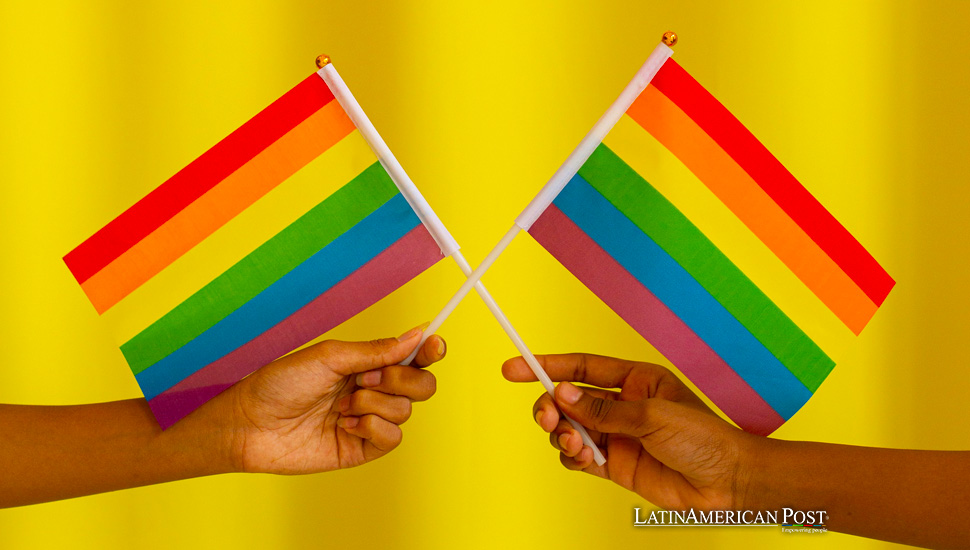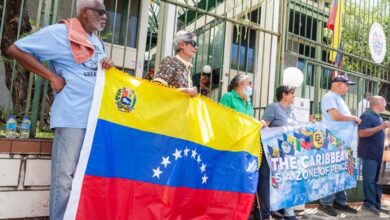Caribbean Clings to Colonial-Era Laws as Saint Vincent Upholds Ban Against LGBTQ+

In a controversial ruling, Saint Vincent and the Grenadines’ top court upheld anti-gay laws from British colonial times, spotlighting the enduring struggle for LGBTQ+ rights in the Caribbean and echoing similar legal battles across the region.
LGBTQ+ Struggle in Saint Vincent and the Grenadines
In the tiny island nation of Saint Vincent and the Grenadines, a recent court ruling has reaffirmed the country’s adherence to colonial-era laws that criminalize same-sex relations, casting a long shadow over the fight for LGBTQ+ rights in the Caribbean. This decision impacts the lives of Javin Johnson and Sean Macleish, two men who sought to challenge these laws, underscores a broader regional conflict between colonial legacies and contemporary human rights norms.
The legal challenge by Johnson and Macleish, both of whom were compelled to leave their homeland due to discrimination over their sexual orientation, sought to overturn statutes that prescribe up to ten years of incarceration for consensual same-sex activities. These laws, rooted in a 1988 criminal code that perpetuated British colonial prohibitions, have been criticized for fostering an environment where discrimination and abuse against the LGBTQ+ community are not only tolerated but institutionalized.
Judge Esco Henry’s ruling against the challenge, citing the plaintiffs’ non-residency as a basis for their lack of standing and expressing concerns over potential health system impacts, highlights the region’s complex interplay between legal frameworks, societal attitudes, and public health narratives. Moreover, imposing legal costs on Johnson and Macleish adds a further punitive layer to their fight for equality.
Wider Caribbean Struggle: Colonial-era Laws Persist
This situation in Saint Vincent and the Grenadines is symbolic of a broader Caribbean struggle with colonial-era laws against the LGBTQ+ community. While some nations in the region, such as Saint Kitts and Nevis, Antigua and Barbuda, and Barbados, have made significant strides by decriminalizing gay sex in recent years, others, including Jamaica, Dominica, Saint Lucia, Guyana, and Grenada, maintain legal penalties against LGBTQ+ individuals.
Despite the growing global movement towards equality and human rights, the persistence of these laws reveals the deep-seated influence of colonial history on contemporary legal and social norms. The British Empire, which once spanned vast swathes of the globe, left behind a legacy of anti-gay legislation in many of its former colonies. The slow pace of reform in some of these nations reflects the challenge of reconciling this legacy with the evolving international human rights landscape.
Comparatively, the journey towards LGBTQ+ rights in Latin America parallels and contrasts the Caribbean experience. Countries like Argentina and Uruguay have emerged as regional leaders in LGBTQ+ rights, legalizing same-sex marriage and enacting comprehensive anti-discrimination laws. These advancements demonstrate the potential for legal and societal transformation, even in regions with deeply conservative roots.
Therefore, the case of Saint Vincent and the Grenadines is not an isolated incident but a reflection of a broader issue that spans former British colonies and beyond. It underscores the urgent need for a concerted effort to address and dismantle remnants of colonial oppression that continue to manifest in anti-LGBTQ+ legislation. This effort requires a multifaceted approach involving legal challenges, public education campaigns, and international pressure to create inclusive societies that respect the rights and dignity of all individuals.
The ruling also highlights the judiciary’s critical role in shaping the trajectory of LGBTQ+ rights. In countries where progress has been made, courts have often been at the forefront of change, challenging outdated laws and interpreting constitutional protections in a manner that expands rights. The contrasting outcome in Saint Vincent and the Grenadines serves as a reminder of the variability of judicial activism and its impact on human rights advancements.
Global Perspective: International Human Rights Activism
Moreover, the response from international human rights organizations and regional activists to the ruling in Saint Vincent and the Grenadines reflects the global dimension of the fight for LGBTQ+ rights. Criticism from entities like Human Rights Watch points to the interconnectedness of local legal battles and global human rights standards, emphasizing the importance of solidarity and international advocacy in effecting change.
As Saint Vincent, the Grenadines, and other Caribbean nations grapple with the legacy of colonial-era laws, the path forward requires legal reform and a broader cultural shift toward acceptance and equality. The experiences of Johnson and Macleish and countless others facing discrimination under archaic laws highlight the ongoing struggle for dignity and rights in a world still marked by historical injustices.
The ruling in Saint Vincent and the Grenadines is a stark reminder of the enduring impact of colonial legacies on contemporary legal and social landscapes. It challenges the international community to reflect on how historical injustices continue to shape present realities. It underscores the need for a sustained and collaborative effort to dismantle barriers to equality. As the Caribbean and other regions confront their colonial pasts, the fight for LGBTQ+ rights stands as a testament to the resilience of marginalized communities and the transformative power of advocacy and solidarity.





